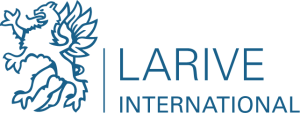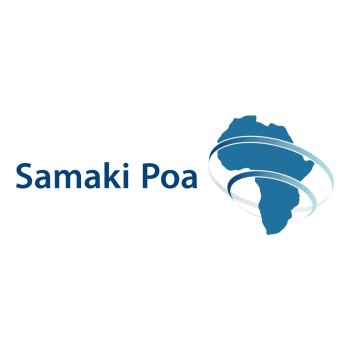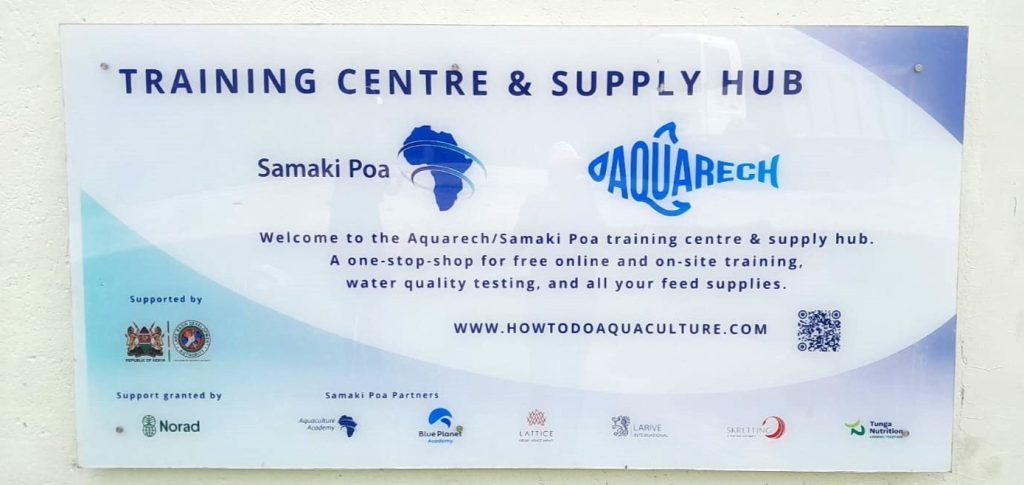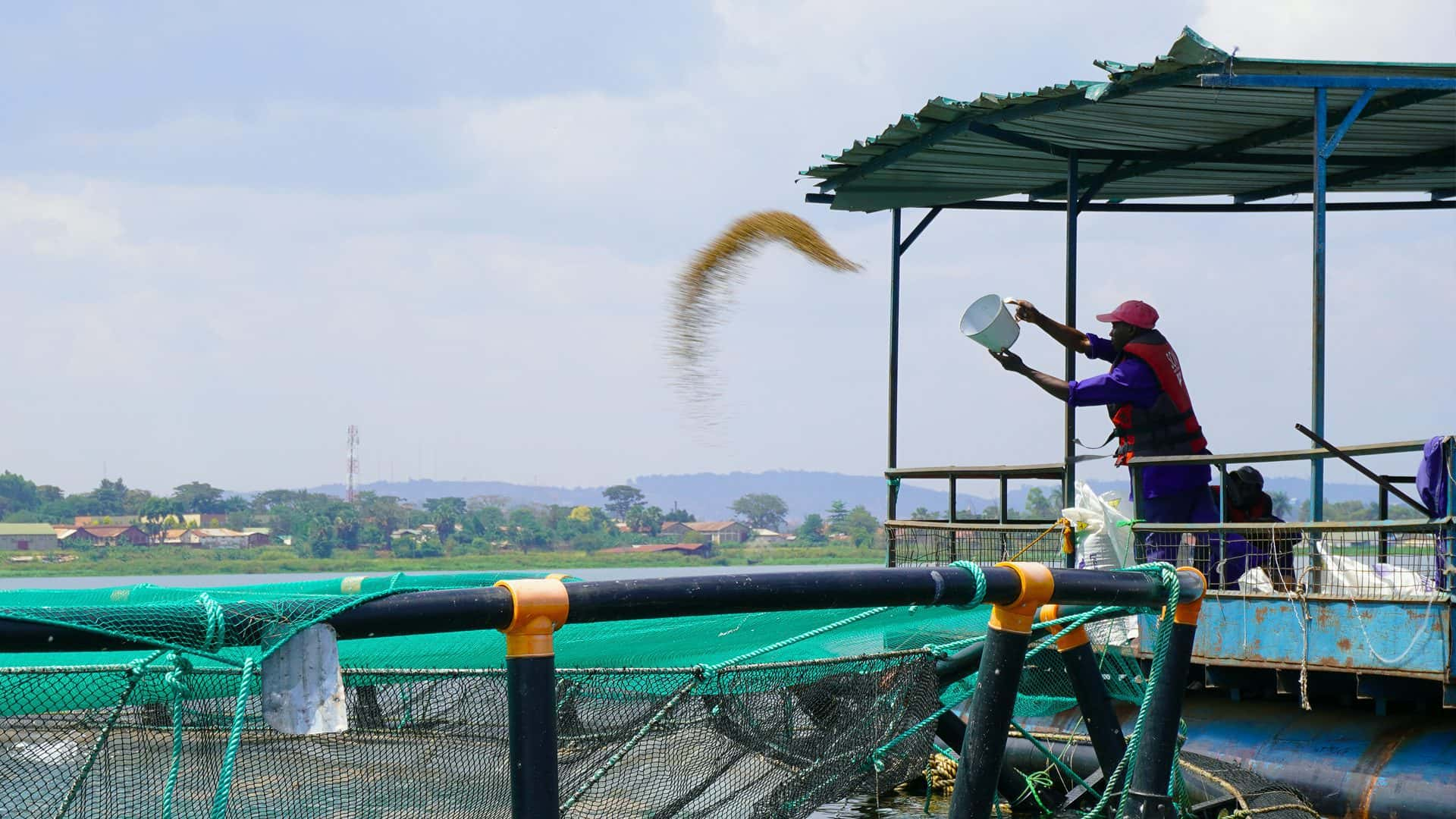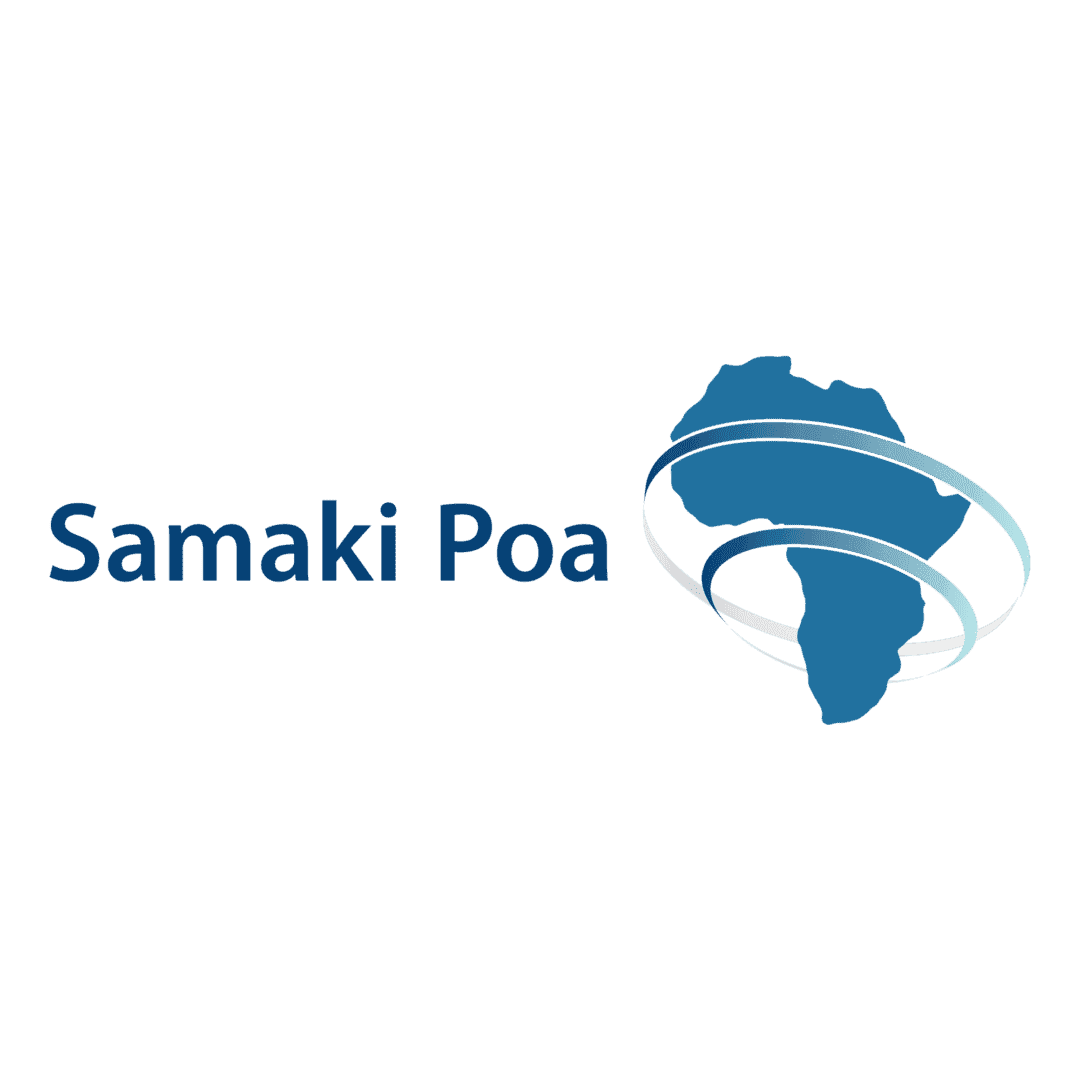Capacity building across the value chain, empowering the aquaculture sector in East Africa
- Region: Kenya, Rwanda, Uganda
- Sector: Aquaculture
- Duration: 2022-Active
- 4 Project partners
- Public-private partnership co-financed by the Norwegian Agency for Development Cooperation (NORAD)
“Aquaculture has the potential to meet the growing demand for protein in East Africa while supporting food security and income generation. However, current local production is hampered by the lack of widely available proper practical training and limited knowledge.” – Wouter van Vliet, director at Larive International
With a focus on capacity building across the value chain, Samaki Poa improves food security and provides practical and applicable expertise to empower the aquaculture sector in East Africa. The consortium, formed by experts in the aquaculture sector, aims to improve access to knowledge and inputs in the Lake Victoria region. Strengthening the aquaculture sector and increasing access to knowledge and education in this region, will result in local private sector development, increased local fish production, increased value chain investments, improved access to sustainable jobs, increased access to skilled labour, and decreased fish import dependency. All activities undertaken in the project are interconnected, but to simplify the activities it can be explained via the three main pillars.
- Digital capacity building
The Samaki Poa partners have developed and launched the digital platform Howtodoaquaculture.com. With localised training content, international best practices and relatable animations, the digital training is made available for free to anyone with a digital device and access to internet. Anyone interested in learning more about all the ins-and-outs to grow Nile tilapia and African catfish effectively and sustainably, or simply understanding the industry to a better extent is at the right place on the platform. By completing the courses, users learn the basics of how to start producing or how to professionalize. Through the 150+ tailor-made videos and quizzes, a total of 17 certificates can be earned by completing challenging quizzes. Best of all, the platform is completely free, meaning that anyone can leverage the knowledge. Even though the project is focused particularly on East Africa, the impact is felt far beyond. The platform is already used in 25+ countries on the African content.
The platform does not only offer learning opportunities through courses and quizzes, but it also boasts an impressive knowledge base containing a categorization of all the videos. On-demand, users can easily return to all the specific sub-topics without having to complete the quizzes, when wishing to quickly refresh their knowledge. Finally, the project seeks to embed the learning materials in sector organizations, TVETs and universities. The sector partners may use the materials for free to support their educational endeavours; offering their students or members not only visual and practical support to the learning but also creating an opportunity to attain extracurricular certificates in the industry.
- Vocational training
While the digital training tool is a fantastic instrument to teaching large numbers of people on all of the important aquaculture topics, gaining real-life experience may be even more important. Not all training institutes have the ability or resources to provide students or trainees with opportunities to gain practical experience. Knowledge best sticks when actually applying it in practice, which led to the establishment of the Aquaculture Academy in Kenya. These academies are being leveraged under Samaki Poa to train a total of 1200 farmers, students, fisheries officers and local community members on the ins and outs of fish farming in intensive training of 1, 3 or 4 days. New curricula have been developed to not only provide training on Nile Tilapia but also African Catfish.
While the Aquaculture Academy locations in Kenya are considered top-notch in their kind, vocational training by Samaki Poa is not limited to these locations. Within Kenya, trainings are offered to regions that are not easily addressed by the current Aquaculture Academy locations, including central and coastal Kenya. Beyond Kenya, Lattice also increased its scope by conducting multiple trainings in Rwanda and Uganda. The training location in Rwanda, the Gishanda Fish Farm offers a perfect set-up for training on both catfish and tilapia. With the time-tested curriculum, Lattice is also able to support local farmer groups with training tailored to their specific needs; giving them the support to directly improve their operations.
- Improving access to essential inputs and services
The third pillar is anchored on the access to quality feed and other inputs. Feed represents the bulk of costs in the aquaculture sector, therefore it is essential that farmers have a good understanding of the proper and efficient use of feed. Furthermore, farmers must have access to good quality feed when seeking to professionalize. Within the project, this is again approached from a knowledge and ease-of-access perspective. Together with the distributors of Skretting and Tunga Nutrition, Samaki Poa develops five locations (2 in Kenya, 2 in Uganda, and 1 in Rwanda) to bring all this together. The training hubs are being used as one-stop-shops for aquaculture needs, where farmers can buy feed and supplies (and in some cases fingerlings), but where they can also enjoy on-site training, use of on-site computers for howtodoaquaculture.com, as well as free on-site water quality testing. It is important to note that the training and access to howtodoaquaculture.com is not limited to paying customers, and should be viewed as a gateway to the vocational and online aquaculture library, for those people that do not have or cannot afford access to the internet.
With the unique combination of a digital platform supplemented with on-site vocational training programs, the partnership practically educates (future) fish farmers with localized know-how and brings the much-needed expertise to the mobile device of thousands of users, combined with practical training. The e-curriculum allows for safe and asynchronous learning, and it especially has the ability to also reach women and youth. Making the combined knowledge available to all (aspiring) fish farmers in East Africa will help unleash the full potential of aquaculture fish production for the regional market.
The project runs from 2022 to 2026 and is an intercontinental cooperation between four stakeholders from East Africa and Europe. Samaki Poa is funded by NORAD granting NOK 20 MN (approximately € 2 MN) to improve the knowledge gap and improve the overall productivity in the sector and value chain in Kenya, Uganda and Rwanda.
Samaki Poa partners:
- Blue Planet AS is a non-profit network company and has developed Blue Planet Academy, which is an e-learning system for the training of operators in the aquaculture business.
- Larive International BV is a business development advisory firm, developing and implementing market entry and growth strategies in emerging markets. Larive is the Project Manager of the Samaki Poa project.
- Lattice is a Kenya-based aquaculture organisation, providing vocational training and aquaculture support activities covering the East Africa region.
- Skretting is a leading animal nutrition company offering solutions for aquaculture and livestock.
